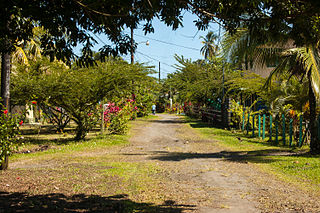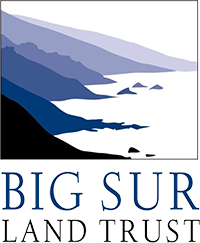Related Research Articles
Land trusts are nonprofit organizations which own and manage land, and sometimes waters. There are three common types of land trust, distinguished from one another by the ways in which they are legally structured and by the purposes for which they are organized and operated:

The Trustees of Reservations is a non-profit land conservation and historic preservation organization dedicated to preserving natural and historical places in the Commonwealth of Massachusetts. It is the oldest land conservation nonprofit organization of its kind in the world and has 100,000 member households as of 2021. In addition to land stewardship, the organization is also active in conservation partnerships, community supported agriculture (CSA), environmental and conservation education, community preservation and development, and green building. The Trustees owns title to 120 properties on 27,000 acres (11,000 ha) in Massachusetts, all of which are open to the public. In addition, it holds 393 conservation restrictions to protect an additional 20,000 acres (8,100 ha). Properties include historic mansions, estates, and gardens; woodland preserves; waterfalls; mountain peaks; wetlands and riverways; coastal bluffs, beaches, and barrier islands; farmland and CSA projects; and archaeological sites.

The American Battlefield Trust is a charitable organization whose primary focus is in the preservation of battlefields of the Revolutionary War, the War of 1812, and the American Civil War, through the acquisition of battlefield land. The American Battlefield Trust was formerly known as the Civil War Trust. On May 8, 2018, the organization announced the creation of the American Battlefield Trust as the umbrella organization for two divisions, the Civil War Trust and the Revolutionary War Trust, which was formerly known as "Campaign 1776."
Size of Wales is a climate change charity founded with the aim of conserving an area of tropical rainforest the size of Wales. The project currently supports seven forest protection projects and one tree planting project across Africa and South America. The charity focuses upon furthering the promotion of rainforest conservation as a national response to the global issue of climate change.

Save the Redwoods League is a nonprofit organization whose mission is to protect and restore coast redwood and giant sequoia trees through the preemptive purchase of development rights of notable areas with such forests.

The Wilderness Society is an American non-profit land conservation organization that is dedicated to protecting natural areas and federal public lands in the United States. They advocate for the designation of federal wilderness areas and other protective designations, such as for national monuments. They support balanced uses of public lands, and advocate for federal politicians to enact various land conservation and balanced land use proposals. The Wilderness Society also engages in a number of ancillary activities, including education and outreach, and hosts one of the most valuable collections of Ansel Adams photographs at their headquarters in Washington, D.C.

Conservation development, also known as conservation design, is a controlled-growth land use development that adopts the principle for allowing limited sustainable development while protecting the area's natural environmental features in perpetuity, including preserving open space landscape and vista, protecting farmland or natural habitats for wildlife, and maintaining the character of rural communities. A conservation development is usually defined as a project that dedicates a minimum of 50 percent of the total development parcel as open space. The management and ownership of the land are often formed by the partnership between private land owners, land-use conservation organizations and local government. It is a growing trend in many parts of the country, particularly in the Western United States. In the Eastern United States, conservation design has been promoted by some state and local governments as a technique to help preserve water quality.

The Trust for Public Land is a U.S. nonprofit organization with a mission to "create parks and protect land for people, ensuring healthy, livable communities for generations to come". Since its founding in 1972, the Trust for Public Land has completed 5,000 park-creation and land conservation projects across the United States, protected over 3 million acres, and helped pass more than 500 ballot measures—creating $70 billion in voter-approved public funding for parks and open spaces. The Trust for Public Land also researches and publishes authoritative data about parks, open space, conservation finance, and urban climate change adaptation. Headquartered in San Francisco, the organization is among the largest U.S. conservation nonprofits, with approximately 30 field offices across the U.S., including a federal affairs function in Washington, D.C.
Open Space Institute (OSI) is a conservation organization that protects land for clean drinking water, public recreation, healthy communities, wildlife habitat, and climate protection. Established in 1974, OSI achieves its goals through land acquisition, fiscal sponsorship, regional loan and grant programs, park and trail improvements, and public policy and advocacy. OSI is active across the country, including the states of New York, Vermont, New Hampshire, Maine, Georgia, South Carolina, Virginia, Tennessee, New Jersey, Massachusetts, Pennsylvania, Alabama, West Virginia, North Carolina, and Florida.
Conservation finance is the practice of raising and managing capital to support land, water, and resource conservation. Conservation financing options vary by source from public, private, and nonprofit funders; by type from loans, to grants, to tax incentives, to market mechanisms; and by scale ranging from federal to state, national to local.
Citizens for East Shore Parks (CESP) is a United States environmental organization that focuses on the acquisition and preservation of parkland in the San Francisco Bay Area. CESP works to protect open space along the East Bay shoreline for natural habitat and recreational purposes through a combination of advocacy, education, and outreach. Since its founding in 1985, CESP has worked to secure approximately 1,800 acres (730 ha) of public land, primarily through the creation of the 8.5-mile (13.7 km) long Eastshore State Park in 2002.
Conserving Carolina is a non-profit conservation organization working to preserve water and land resources in Western North Carolina. Conserving Carolina was created in July 2017, from a merger of two previously separate organizations, Carolina Mountain Land Conservancy and Pacolet Area Conservancy. The combined organization maintains a primary office in Hendersonville, North Carolina, and a regional office in Columbus, North Carolina.

An open space reserve is an area of protected or conserved land or water on which development is indefinitely set aside.
Stewardship Partners is a 501(c)(3) non-profit organization based in Seattle, Washington, United States with a mission to help private landowners restore and preserve the natural landscapes of Washington State. They have programs that promote incentive-based tools to encourage landowners and businesses to participate in voluntary conservation practices. The goal is to restore fish and wildlife habitat, improve water quality, and protect open space while maintaining the working landscape of farms, forestland, and communities throughout the state.
Joshua's Tract Conservation and Historic Trust, or Joshua's Trust, is a non-profit 501(c)(3) land trust operating in northeast Connecticut. Joshua's Trust was incorporated in 1966 to help conserve property of significant natural or historic interest. As of 2011, the Trust protects more than 5,000 acres, maintains 42 miles of trails that are open to the public, holds educational outreach programs, and publishes the Joshua's Tract Walkbook.
The Community Preservation Act (CPA) is a Massachusetts state law passed in 2000. It enables adopting communities to raise funds to create a local dedicated fund for open space preservation, preservation of historic resources, development of affordable housing, and the acquisition and development of outdoor recreational facilities.
Scenic Hudson is a non-profit environmental organization in New York that was founded in 1963 to oppose a hydro-electric power project in New York.

The Big Sur Land Trust is a private 501(c)(3) non-profit located in Monterey, California, that has played an instrumental role in preserving land in California's Big Sur and Central Coast regions. The trust was the first to conceive of and use the "conservation buyer" method in 1989 by partnering with government and developers to offer tax benefits as an inducement to sell land at below-market rates. Since 1978, with the support of donors, funders and partners, it has conserved over 40,000 acres through conservation easements, acquisition and transfer of land to state, county and city agencies. It has placed conservation easements on 7,000 acres and has retained ownership of over 4,000 acres.

California Proposition 68 was a legislatively referred constitutional amendment that appeared on ballots in California in the June primary election in 2018. It was a $4.1bn bond measure to fund parks, environmental projects, water infrastructure projects and flood protection measures throughout California.
References
- ↑ TCC website